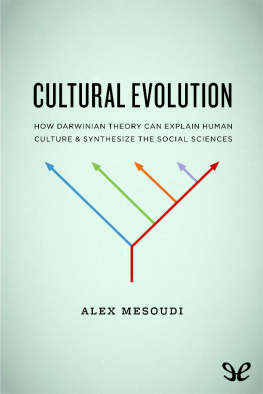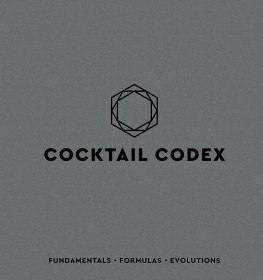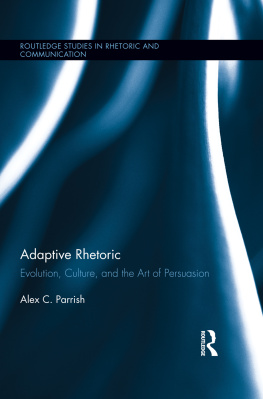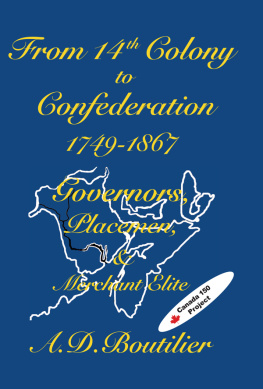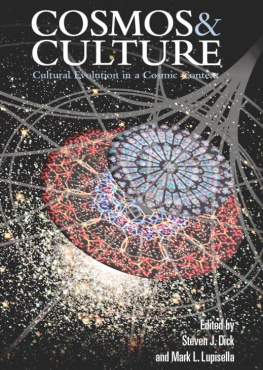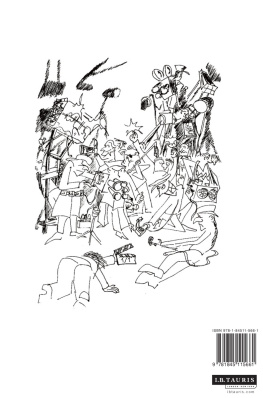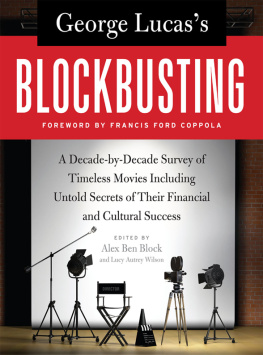Alex Mesoudi - Cultural Evolution
Here you can read online Alex Mesoudi - Cultural Evolution full text of the book (entire story) in english for free. Download pdf and epub, get meaning, cover and reviews about this ebook. genre: Romance novel. Description of the work, (preface) as well as reviews are available. Best literature library LitArk.com created for fans of good reading and offers a wide selection of genres:
Romance novel
Science fiction
Adventure
Detective
Science
History
Home and family
Prose
Art
Politics
Computer
Non-fiction
Religion
Business
Children
Humor
Choose a favorite category and find really read worthwhile books. Enjoy immersion in the world of imagination, feel the emotions of the characters or learn something new for yourself, make an fascinating discovery.
- Book:Cultural Evolution
- Author:
- Genre:
- Rating:3 / 5
- Favourites:Add to favourites
- Your mark:
- 60
- 1
- 2
- 3
- 4
- 5
Cultural Evolution: summary, description and annotation
We offer to read an annotation, description, summary or preface (depends on what the author of the book "Cultural Evolution" wrote himself). If you haven't found the necessary information about the book — write in the comments, we will try to find it.
Cultural Evolution — read online for free the complete book (whole text) full work
Below is the text of the book, divided by pages. System saving the place of the last page read, allows you to conveniently read the book "Cultural Evolution" online for free, without having to search again every time where you left off. Put a bookmark, and you can go to the page where you finished reading at any time.
Font size:
Interval:
Bookmark:

Charles Darwin changed the course of scientific thinking by showing how evolution accounts for the stunning diversity and biological complexity of life on earth. Recently, there has also been increased interest in the social sciences in how Darwinian theory can explain human culture.
Covering a wide range of topics, including fads, public policy, the spread of religion, and herd behavior in markets, Alex Mesoudi shows that human culture is itself an evolutionary process that exhibits the key Darwinian mechanisms of variation, competition, and inheritance. This cross-disciplinary volume focuses on the ways cultural phenomena can be studied scientificallyfrom theoretical modeling to lab experiments, archaeological fieldwork to ethnographic studiesand shows how apparently disparate methods can complement one another to the mutual benefit of the various social science disciplines. Along the way, the book reveals how new insights arise from looking at culture from an evolutionary angle. Cultural Evolution provides a thought-provoking argument that Darwinian evolutionary theory can both unify different branches of inquiry and enhance understanding of human behavior.

Alex Mesoudi
How Darwinian theory can explain human culture & synthesize the social sciences
ePub r1.0
Titivilus 22.05.16
Alex Mesoudi, 2011
Digital editor: Titivilus
ePub base r1.2
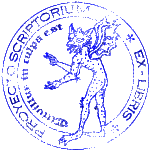
Works Cited
Aberle, D. F. 19 61. Matrilineal descent in cross-cultural perspective. In Matrilineal kinship, edited by D. M. Schneider and K. Gough 655-730. Berkeley: University of California Press.
Ambrose, S. H. 2001. Paleolithic technology and human evolution. Science 291:1748-1753.
Aoki, K., J. Y. Wakano, and M. W. Feldman. 2005. The emergence of social learning in a temporally changing environment: A theoretical model. Current Anthropology 46:334-340.
Asch, S. E. 1951. Effects of group pressure on the modification and distortion of judgments. In Groups, leadership and men, edited by H. Guetzkow, 177-190. Pittsburgh, PA: Carnegie Press.
Atkinson, Q. D., A. Meade, C. Venditti, S. J. Greenhill, and M. Pagel. 2008. Languages evolve in punctuational bursts. Science 319:588.
Atran, S. 2001. The trouble with memes: Inference versus imitation in cultural creation. Human Nature 12:351-381.
2002. In gods we trust: The evolutionary landscape of religion. New York: Oxford University Press.
Aunger, R. 1995. On ethnography: Storytelling or science. Current Anthropology 36:97-130.
2000. The life history of culture learning in a face-to-face society. Ethos 28:1-38.
2002. The electric meme. New York: Free Press.
2004. Reflexive ethnographic science. Walnut Creek, CA: Altamira.
Baldwin, J. R., S. L. Faulkner, M. L. Hecht, and S. L. Lindsley. 2006. Redefining culture: 'Perspectives across disciplines. Mahwah, NJ: Lawrence Erlbaum.
Bandura, A. 1977. Social learning theory. Oxford: Prentice-Hall.
Bandura, A., D. Ross, and S. A. Ross. 1961. Transmission of aggression through imitation of aggressive models. Journal of Abnormal and Social Psychology 63:575-582.
Barbrook, A. C., C. J. Howe, N. Blake, and P. Robinson. 1998. The phylogeny of the Canterbury Tales. Nature 394:839.
Barrett, D. B., G. T. Kurian, and T. M. Johnson. 2001. World Christian encyclopedia: A comparative survey of churches and religions in the modern world. Oxford: Oxford University Press.
Barrett, J. L., and M. A. Nyhof. 2001. Spreading non-natural concepts: The role of intuitive conceptual structures in memory and transmission of cultural materials. Journal of Cognition and Culture 1:69-100.
Bartlett, F. C. 1932. Remembering. Oxford: Macmillan.
Basalla, G. 1988. The evolution of technology. Cambridge: Cambridge University Press.
Bell, A. V., P. J. Richerson, and R. McElreath. 2009. Culture rather than genes provides greater scope for the evolution of large-scale human prosociality. Proceedings of the National Academy of Sciences 106:17671-17674.
Bentley, R. A., M. W. Hahn, and S. J. Shennan. 2004. Random drift and culture change. Proceedings of the Royal Society B 271:1443-1450.
Bentley, R. A., and S. J. Shennan. 2005. Random copying and cultural evolution. Science 309:877-879.
Benton, T. 2000. Social causes and natural relations. In Alas, poor Darwin, edited by H. Rose and S. Rose, 206-224. New York: Harmony.
Bettinger, R. L., and J. Eerkens. 1999. Point typologies, cultural transmission, and the spread of bow-and-arrow technology in the prehistoric Great Basin. American Antiquity 64:231-242.
Blackmore, S. 1999. The meme machine. Oxford: Oxford University Press.
Bloch, M. 2000. A well-disposed social anthropologists problems with memes. In Darwinizing culture, edited by R. Aunger, 189-204. Oxford: Oxford University Press.
Boas, F. 1920. The methods of ethnology. American Anthropologist 22: 311-321.
Borgerhoff Mulder, M., C. L. Nunn, and M. C. Towner. 2006. Cultural macroevolution and the transmission of traits. Evolutionary Anthropology 15:52-64.
Boyd, R., and P. J. Richerson. 1985. Culture and the evolutionary process. Chicago: University of Chicago Press.
1995. Why does culture increase human adaptability? Ethology and Sociobiology 16:125-143.
2009. Culture and the evolution of human cooperation. Philosophical Transactions of the Royal Society B 364:3281.
Boyer, P. 1994. The naturalness of religious ideas: A cognitive theory of religion. Berkeley: University of California Press.
Bramanti, B., M. G. Thomas, W. Haak, M. Unterlaender, P. Jores, K. Tambets, I. Antanaitis-Jacobs, M. N. Haidle, R. Jankauskas, and C. J. Kind. 2009. Genetic discontinuity between local hunter-gatherers and central Europes first farmers. Science 326:137.
Brockhurst, M. A., N. Colegrave, D. J. Hodgson, and A. Buckling. 2007. Niche occupation limits adaptive radiation in experimental microcosms. PLoS One 2:e193.
Bury, J. B. 1923. History of the later Roman empire. London: Macmillan.
Byrne, R. W., and A. Whiten, eds. 1988. Machiavellian intelligence: Social expertise and the evolution of intellect in monkeys, apes, and humans. Oxford: Clarendon Press.
Cadieu, E., M. W. Neff, P. Quignon, K. Walsh, K. Chase, H. G. Parker, B. M. VonHoldt, A. Rhue, A. Boyko, and A. Byers. 2009. Coat variation in the domestic dog is governed by variants in three genes. Science 326:150-153.
Caldwell, C., and A. E. Millen. 2009. Social learning mechanisms and cumulative cultural evolution: Is imitation necessary? Psychological Science 20:1478-1483.
Camerer, C., and R. H. Thaler. 1995. Anomalies: Ultimatums, dictators and manners. Journal of Economic Perspectives 9:209-219.
Campbell, D. T. 19 60. Blind variation and selective retentions in creative thought as in other knowledge processes. Psychological Review 67:380-400.
1965. Variation and selective retention in socio-cultural evolution. In Social change in developing areas, edited by H. R. Barringer, G. I. Blanksten, and R. W. Mack, 19-49. Cambridge, MA: Schenkman.
Font size:
Interval:
Bookmark:
Similar books «Cultural Evolution»
Look at similar books to Cultural Evolution. We have selected literature similar in name and meaning in the hope of providing readers with more options to find new, interesting, not yet read works.
Discussion, reviews of the book Cultural Evolution and just readers' own opinions. Leave your comments, write what you think about the work, its meaning or the main characters. Specify what exactly you liked and what you didn't like, and why you think so.

